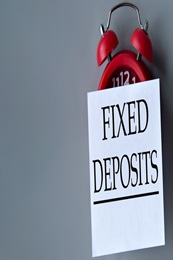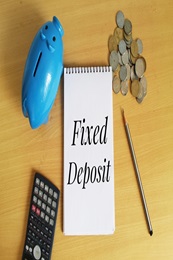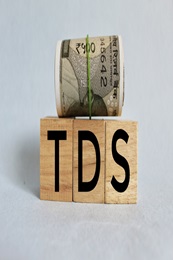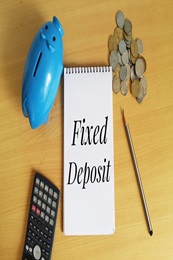Tax-Saver Fixed Deposits: Benefits and Features
April 15, 2025
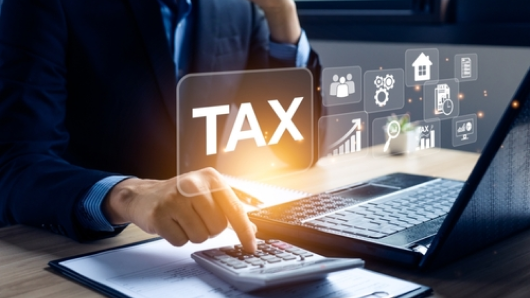
As far as old tax regime is concerned, no changes was announced in the Union Budget 2024. The new tax regime does offer its own share of benefits including increased standard deduction (₹75,000), however, it doesn't allow you to claim any tax benefits. So, if you're someone living in a rented house, have a home loan, or significantly invest in instruments falling under Section 80C, the old tax regime could still be beneficial for you. Talking about Section 80C, did you know you can grow your wealth and save tax with the same investment instrument? No, we're not talking about ELSS funds - there's a much safer investment option than that - in the form of Tax Saver Fixed Deposits.
In this blog post, we will explore the FD tax benefits and how they can help you achieve your financial goals.
Understanding Tax-Saver Fixed Deposits
Tax Saving FDs, are a type of fixed deposit where individuals can claim a tax deduction under Section 80C of the Income Tax Act of 1961. These deposits come with certain conditions and have a lock-in period of five years. The interest earned on these deposits is taxable. Despite this, there are several benefits of Tax Saver FDs.
Benefits of Tax-Saver Fixed Deposits
Investing in tax-saver fixed deposits offers several benefits:
1. Higher Interest Rates Compared to Savings Accounts
Tax-Saver Fixed Deposits generally offer higher interest rates compared to regular Savings Accounts. Such FDs provide an opportunity for individuals to grow their wealth while saving on taxes.
2. Tax Savings U/s 80C of the Income Tax Act
Unlike regular Fixed Deposits, you can save on your tax outgo with Tax Saving FDs under Section 80C of the Income Tax, 1961. As of August 2024, you claim tax deduction up to ₹1.5 lakh.
3. Lock-in Period for Disciplined Saving
Tax-Saver FDs come with a lock in period of 5 years, meaning you cannot withdraw the deposit amount till your FD matures. In a sense, it's a good way of parking your money in an instrument for long-term. It helps you save in a disciplined manner without giving in to your impulses.
4. Secure Investment
Investments made in Tax-saver Fixed Deposits are insured under Deposit Insurance and Credit Guarantee Corporation (DICGC) for an amount up to ₹5 lakh per depositor in a bank. Also, unlike ELSS investments, the FD interest rates remain unaffected by market conditions. The interest rates remain fixed until maturity, providing stability and security.
5. Flexible Deposit Amount
Such FDs offer flexibility in terms of the deposit amount. You can invest as per your convenience and financial goals, starting from a minimum amount set by the bank.
6. Interest Pay-out Options
Tax Saver FDs often come with flexible interest payment options. If you're looking for a regular income stream, you can opt for monthly or quarterly interest pay outs (mostly at a discounted rate), or if you can opt for interest pay-out at the time of maturity.
Key Features of Tax-Saver Fixed Deposits
Let's take a closer look at the key features of tax-saver fixed deposits.
1. Tax Exemption
One of the main advantages of investing in tax-saver fixed deposits is the tax exemption available under Section 80C of the Income Tax Act, 1961. You can claim a deduction on investments up to ₹1.5 lakh per year.
2. Taxable Interest
The interest earned on tax-saver fixed deposits is taxable and subject to TDS (Tax Deducted at Source). The interest is added to your annual income and taxed as per your income tax slab.
3. No Premature Withdrawals
Unlike regular Fixed Deposits, Tax-Saver Fixed Deposits do not allow premature withdrawals. This feature ensures that you maintain the discipline of staying invested for the entire lock-in period.
4. No Auto-Renewal Option
Tax-Saver Fixed Deposits do not have an auto-renewal facility. Once the deposit matures, you need to decide whether to reinvest the amount or withdraw it.
5. Joint Account Option
Tax-Saver Fixed Deposits can be held in a single or as a joint account. However, tax benefits are available only to the first account holder in the case of a joint account.
Now that you are aware of the benefits and features of these types of FDs, it is time to visit your trusted bank and apply for a Tax-Saving FD.
Final Thoughts
Tax-Saver Fixed Deposits offer a great opportunity to save on taxes while growing your wealth. By investing in these fixed deposits, you can claim deductions under Section 80C of the Income Tax Act, 1961, and earn higher interest rates compared to regular savings accounts.
FAQs
1. What is a tax saving FD?
A Tax-Saver Fixed Deposit is a type of fixed deposit that offers tax benefits under Section 80C of the Income Tax Act of 1961.
2. How much tax deduction can I claim with a tax saving FD?
You can claim a tax deduction of up to ₹1.5 lakh per year under Section 80C of the Income Tax Act, 1961.
3. Can I withdraw money from a tax saving FD before the completion of the lock-in period?
No, premature withdrawals are not allowed in tax-saver fixed deposits.
4. Can I avail of a loan against a tax saving FD?
No, loans or overdraft facilities are not available against tax-saver fixed deposits.
5. How is the interest on a tax saving FD taxed?
The interest earned on tax-saver fixed deposits is taxable as per your income tax slab and added to your annual income.
6. Can I open a joint tax saving FD account?
Yes, you can open a joint account for tax-saver fixed deposits. However, tax benefits are available only to the first account holder.
7. What is the minimum deposit amount for a tax saving FD?
The minimum deposit amount for a Tax-Saver Fixed Deposit varies depending on the bank. Please check with your bank for specific details.
8. Can I choose the frequency of interest payouts for my tax saving FD?
Yes, you can choose to receive interest payouts monthly, quarterly, or at maturity.
9. Is there an auto-renewal option for tax-saver fixed deposits?
No, tax-saver fixed deposits do not have an auto-renewal facility.
10. Is it possible to invest in tax-saver fixed deposits through post offices?
Yes, time deposits in post offices for five years qualify as tax-saver fixed deposits.
11. Are senior citizens eligible for tax benefits with tax-saver fixed deposits?
Yes, senior citizens can also avail of tax benefits by investing in tax-saver fixed deposits.
12. Can HUFs (Hindu Undivided Families) invest in tax-saver fixed deposits?
Yes, HUFs are eligible to invest in tax-saver fixed deposits.
13. How can new customers open a Tax-Saver Fixed Deposit account online with Ujjivan SFB?
New customers can open a Tax-Saver Fixed Deposit account by visiting the Ujjivan SFB website's Tax-Saver Fixed Deposit page, clicking "Apply Now," filling in their details, generating an OTP, and submitting the application to complete the account opening process.
14. What options do existing Ujjivan SFB customers have to open a Tax-Saver Fixed Deposit account?
Existing customers can open a Tax-Saver Fixed Deposit account through internet banking, the mobile banking application, giving a missed call to 799 666 6663, visiting a Ujjivan SFB branch, or completing the KYC process on the online FD page.
15. How long does it take to receive the Tax-Saver Fixed Deposit receipt after completing the online account opening process?
Upon completing the online account opening process, the Tax-Saver Fixed Deposit receipt will be sent to the registered email ID within 24 hours.
Latest Blogs

Telangana Housing Board & KPHB Colony: A Guide to Affordable Urban Housing in Hyderabad
March 14, 2025
As Telangana continues its rapid urbanisation journey, two key housing entities—Telangana Housing Board (THB) and Kukatpally Housing Board Colony (KPHB)—have played critical roles in shaping the state's real estate ecosystem.

Does Checking CIBIL Score Frequently Lower Your Credit Points?
April 07, 2025
Imagine you're planning to apply for a home loan, a credit card, or even a car loan. Naturally, you want to ensure your CIBIL score is in good shape before proceeding.

Explained: Can NRIs Buy an Agricultural Land in India?
April 03, 2025
Real estate investment is often a top priority for Non-Resident Indians (NRIs) looking to retain strong financial ties to India.

How to Improve Your CIBIL Score from 600 to 750: A Step-by-Step Guide
April 02, 2025
Your CIBIL score is like your financial reputation—banks check it before approving loans or credit cards. If your score is hovering around 600, you might face difficulties in securing credit or may get loans with higher interest rates.

What Happens When You Leave Your Savings Account Unused?
April 01, 2025
Imagine waking up one day to find that your hard-earned money is locked away and inaccessible. Sounds stressful, right? This is precisely what happens when you leave your Savings Account inactive for too long.

